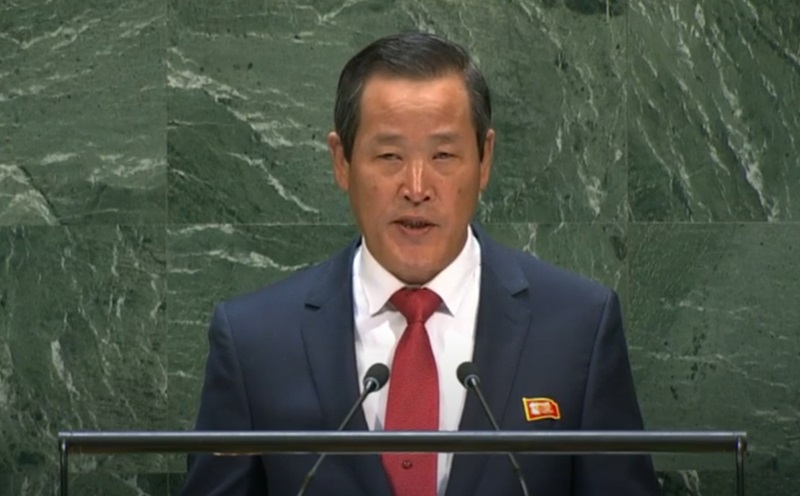North Korea will never bargain over its “national prestige,” Pyongyang’s envoy to the U.N. said Monday, reaffirming the recalcitrant regime’s adherence to its nuclear weapons program in defiance of criticism against its growing security threats.
Ambassador Kim Song made the remarks during a general debate at the U.N. General Assembly, repeating its accusations of the United States’ “hostility” toward Pyongyang and claiming that its nuclear weapons were “just made and exist to defend ourselves.”
“When it comes to the right to self-defense, a legitimate right of a sovereign state, we will never go back to the point in the far-off past,” he said. “When it comes to national prestige, we will never bargain over it with anyone for it was gained through the bloody struggle of the entire Korean people.”
His remarks further dimmed the prospects for the resumption of serious nuclear talks between Washington and Pyongyang, which have stalled since their no-deal summit in Hanoi in February 2019. The Biden administration has offered to talk with the North “without preconditions,” but Pyongyang has not responded to the overtures.

Kim said that whoever wins the White House in the U.S. presidential election in November, North Korea will only deal with “the state entity called the U.S., not the mere administration.”
“Likewise, any U.S. administration will have to face the DPRK which is different from what the U.S. used to think,” he said, using the acronym of the North’s official name, the Democratic People’s Republic of Korea.
The ambassador appeared to make an implicit call for a future U.S. administration to accept it as a nuclear weapons state given that it has been doubling down on its nuclear and ballistic missile programs under its leader Kim Jong-un.
Observers said that the North has been carefully watching developments during the U.S. election season as who wins the Oval Office would affect Washington’s policy direction.
Should Vice President Kamala Harris be elected, she is expected to focus on strengthening America’s network of alliances and partnerships to counter North Korean threats. In the event of former President Donald Trump’s return to the White House, he could revive her personal diplomacy with Kim in a resumption of diplomatic engagement between the two countries.
The ambassador justified the North’s nuclear program as a defensive measure, criticizing the operation of a key South Korea-U.S. nuclear deterrence body, called the Nuclear Consultative Group, as well as a series of the allies’ regular combined military exercises.
“Under such circumstances, it is an indispensable exercise of sovereign rights for the DPRK to maintain powerful strength capable of defending national security interests and guaranteeing peaceful development,” he said.
Kim also called the North’s military activities the “legitimate exercise of the right to self-defense by a sovereign state which did not do any harm to anybody” while lambasting the U.S. description of its activities as “threats” and “provocations.”
Yonhap




